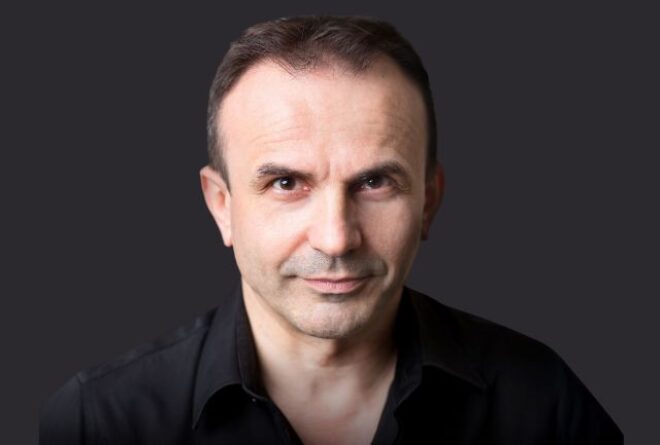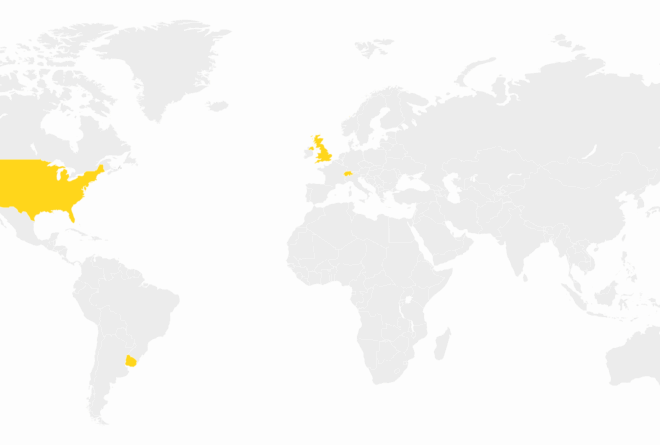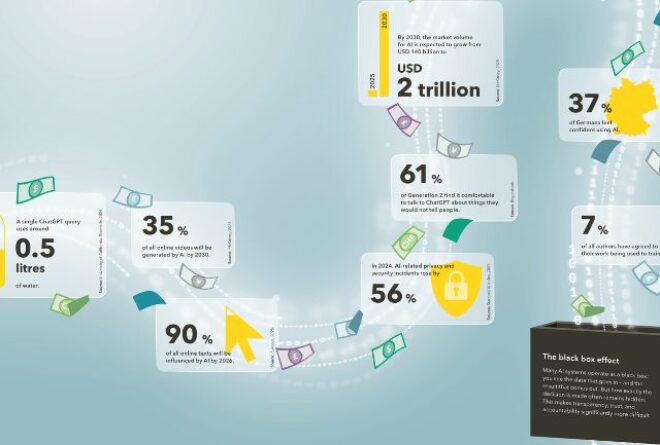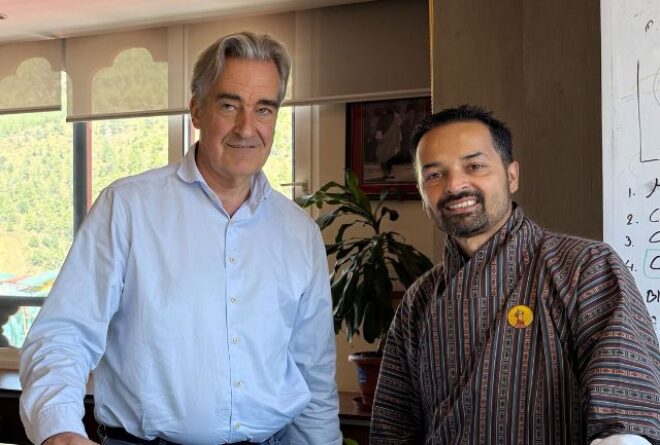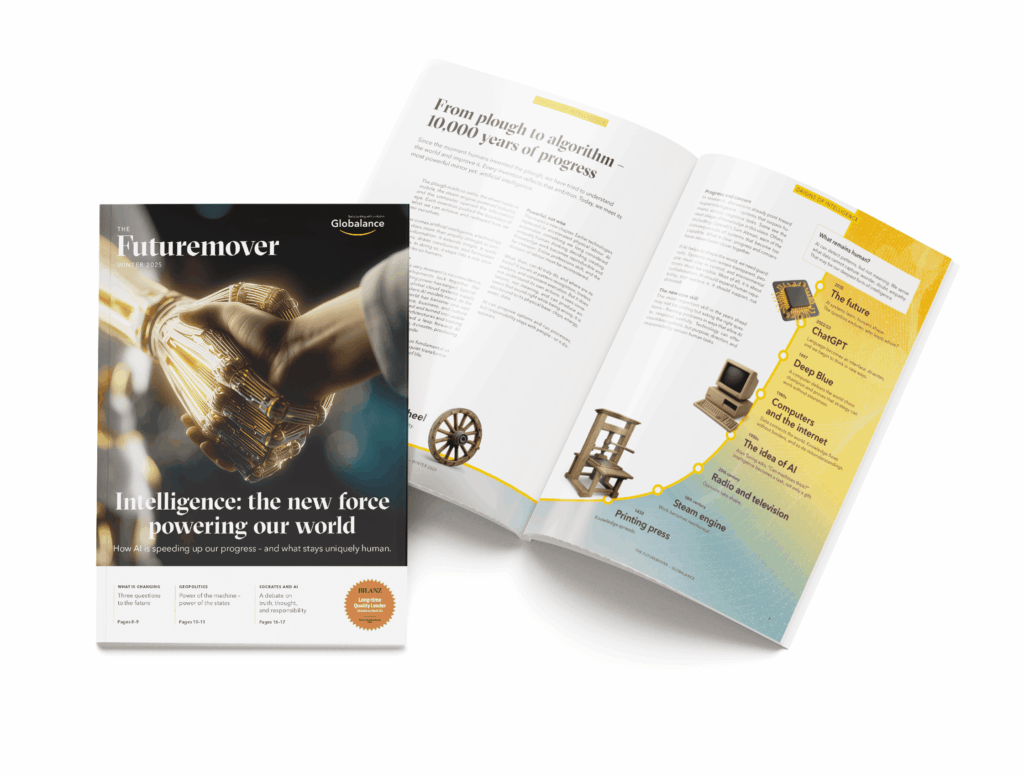News & Trends
Ensuring quantum computers don’t unleash disaster
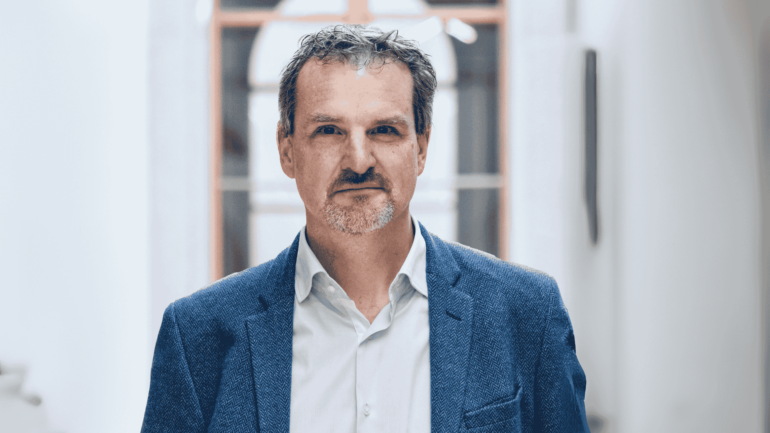
Visionary Grégoire Ribordy
Is it possible to encrypt our data so securely that even quantum computers can’t hack it at some point? That was the question posed by Grégoire Ribordy — who hails from French-speaking Switzerland — when studying for his doctorate. Today, with the ID Quantique firm he co-founded, Ribordy produces quantum cryptography for the world market.
Mr Ribordy, quantum computers are set to change our world. What sort of things can we expect?
Quantum computers are a new type of computer that use the laws of quantum physics to solve previously insurmountable problems. To give you an example, they will enable us to develop new materials or discover drugs. In the future, it will also be possible to use the technology in finance or logistics. It’s also very likely that there will be applications that are currently unimaginable to us. The flipside of this innovation is that — in a matter of seconds — quantum computers can hack the codes we currently use to protect information. This constitutes a big risk as far as the sensitive data of governments, banks and companies is concerned.
To avert this risk, you — along with three other scientists — set up the ID Quantique spin-off in 2001, when you were studying for your doctorate in philosophy and physics. Your aim was to encrypt data so securely that even quantum computers couldn’t hack it. But quantum computers were a long way off back then. Why did you predict this megatrend?
It isn’t the case that quantum computers weren’t around yet. The software had already existed since the 1990s — though not the hardware. It’s only a matter of time before this is invented as well. At Geneva University in 2001, I was in the right place at the right time. With two professors and an engineer, I had the perfect team by my side. It was clear to us that if we want to protect our data for the long term, we need to predict the risks of the future and protect data for its entire lifetime.
ID Quantique is now a world leader in quantum cryptography. Did you benefit from a pro-innovation culture in Switzerland?
I always say Switzerland is the best place to research quantum physics … and the worst place for setting up a deep-tech start-up. ID Quantique benefits heavily from the close cooperation between science and education. But Switzerland shouldn’t just be investing in science — it should also be investing in the development of marketable products. That’s where our competitors in China and in Europe have a clear lead.
Do Swiss spin-offs and start-ups get too little support?
Exactly right. Deep-tech firms in particular need a lot of time to come up with a marketable product — and they also need money to survive this “valley of death” between science and marketing. Underlying conditions in Switzerland are poor: Swiss investors show little willingness to take risk — reflected in the fact that we’ve never received any investment from Switzerland. There’s usually a lack of support from government, too, during this phase. The National Science Foundation helps right at the start, as does Innosuisse in the run-up to market launch. But there’s a big gap between the two.
Your story is one of success: You began with CHF 100,000 in start-up capital. Soon after, a million Swiss francs in investor funds were channelled into ID Quantique. Then in 2018 the South Korean firm SK Telecom came up with CHF 65 million. Through chips for Samsung, it gave the start-up access to the global market. What did this success mean for you personally?
As far as I’m concerned, it was always clear that — rather than a sprint — we were facing a marathon with long-term goals. We had to force ourselves to think big. That’s not something the Swiss are good at. I had to learn to do that.
Your first product was big and impractical. Today, quantum cryptography is concealed in tiny chips. What’s next in store?
We’ve still got a long way to go. The fact is that our solution is still too big for complex applications. At the same time, we mustn’t miss out on opportunities. We need to tackle new areas and invest in more innovations. Because rival start-ups are springing up around the world. Although they’re behind us in technology terms, they’ve got big ideas.
Random numbers for greater security
Quantum cryptography takes the principles of quantum physics to encrypt data and make them tap-proof. Grégoire Ribordy founded ID Quantique in 2001 with the vision of developing chips based on genuinely random numbers. These enable particularly secure encryption that stands up even to quantum computers.
Data encryption using quantum physics offers two key advantages:
1. Manipulations are identified immediately: any deviation in data transmission is registered without delay.
2. Future-proof Information remains secure against attacks in the long term too — even from future technologies such as quantum computers.
Grégoire Ribordy’s recipe for success
Switzerland — a centre for education
Ribordy completed his Master degree at EPFL and was awarded a doctorate by the University in Geneva. He later studied business management in St. Gallen. He benefited from Switzerland’s excellent reputation for science.
Vision
He recognized the dangers of quantum computers at a time when everyone else was only talking about the opportunities.
Courage
Ribordy leaned to think big and lead ID Quantique to success in pioneering fashion.
Luck
He was with the right people in the right place at the right time — and made the most of this unique opportunity.
Science and business
Ribordy successfully brought the various actors together.
Be part of the solution and stay informed with the Futuremover.
Subscribe now and shape the future!
Magazin abonnieren EN
"*" indicates required fields
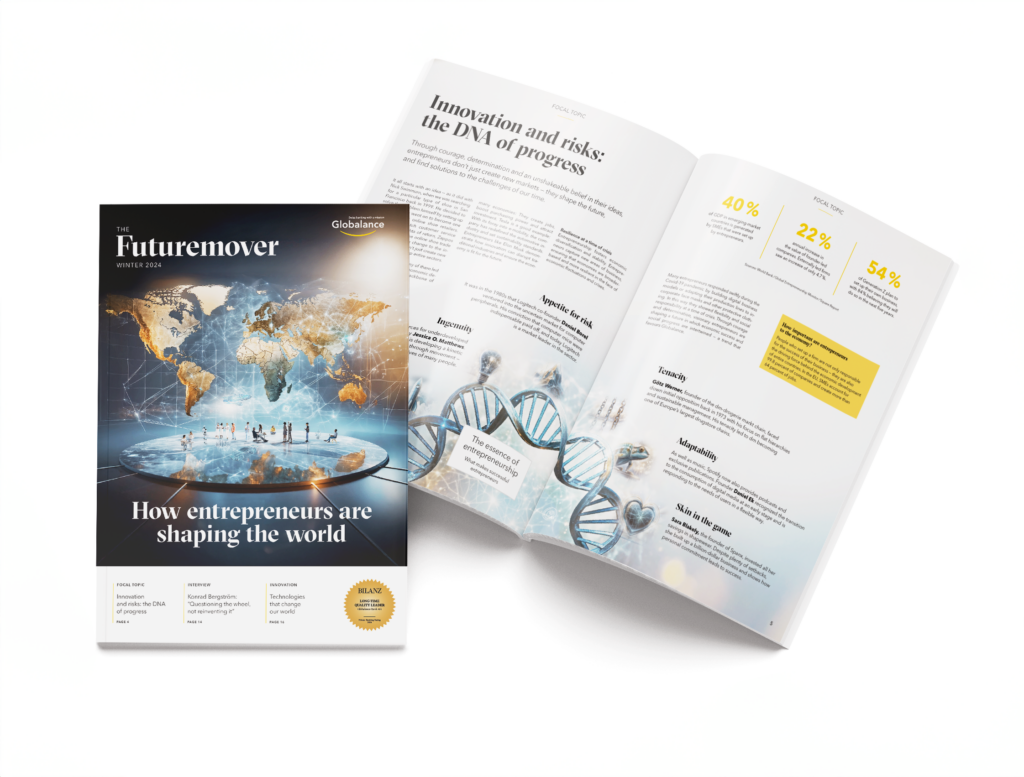
Discover the entire issue
Read more articles from our current issue: ‘How entrepreneurs are shaping the world?’.
